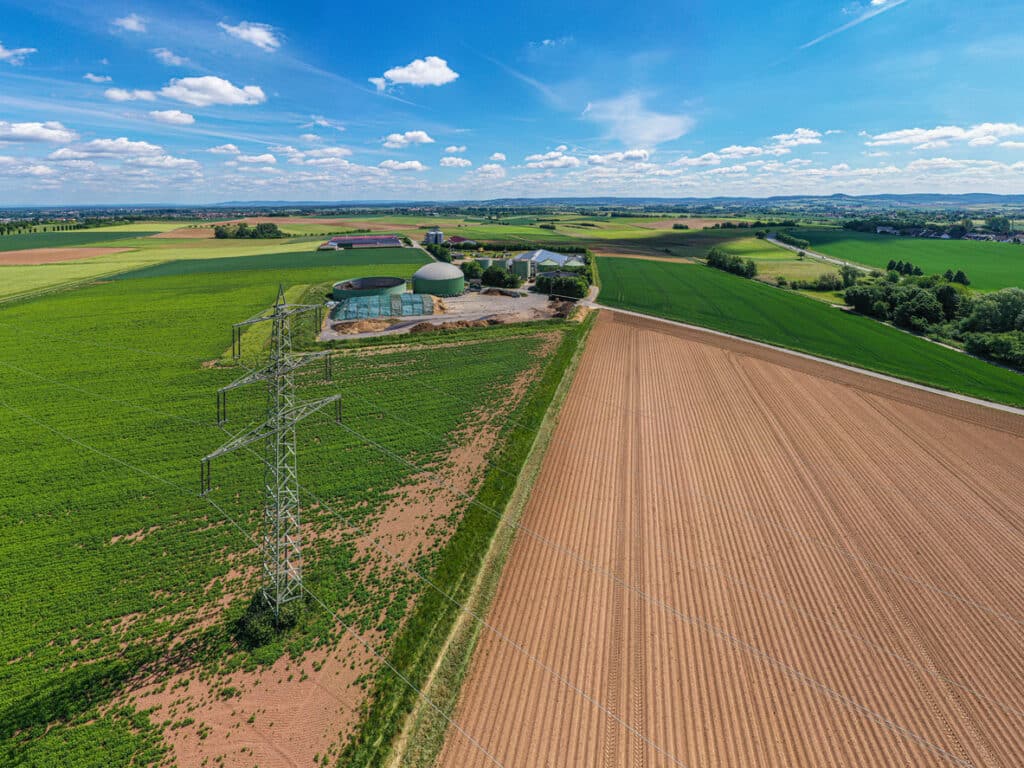
An Overview of Carbon Credits for Farmers for Methane Capture in Agriculture
Carbon credits are a market-based tool that allows farmers to earn financial rewards for reducing greenhouse gas emissions. The credits especially focus on methane reduction.
Carbon credits for methane capture are part of the voluntary carbon market, aiming to reduce emissions by allowing the purchase of credits representing reduced emissions elsewhere. Methane capture involves capturing emissions from sources like landfills, abandoned oil and gas wells, and agricultural operations. For agricultural methane capture, methods include feed additives to reduce emissions from livestock and improve water management in rice cultivation.
High-integrity carbon credits must meet standards set by bodies like the Integrity Council for the Voluntary Carbon Market (ICVCM), which ensures credits are additional, verifiable, and durable. The voluntary carbon market, including methane capture projects, is projected to grow significantly, driven by increasing climate change targets.
Methane capture projects not only mitigate climate change but also offer co-benefits such as reducing local pollution and providing renewable energy. These projects align with broader sustainability goals and contribute to community health and environmental restoration.
Understanding Methane Emissions in Agriculture
Methane emissions in agriculture primarily come from:
- Enteric Fermentation: Methane is produced during digestion in ruminant animals such as hogs, pigs, cows and sheep.
- Manure Management: Methane generated from the decomposition of manure under anaerobic conditions.
- Rice Paddies: Methane emissions from flooded rice fields due to anaerobic decomposition of organic matter.
Carbon Credits for Methane
Carbon credits serve as a financial mechanism to encourage the reduction of greenhouse gases, such as methane, in agriculture. These credits are awarded to farmers who implement practices that capture or reduce methane emissions, which is a potent greenhouse gas with a global warming potential significantly higher than CO₂.
How Methane Capture Works
In agricultural settings, methane capture can be achieved through several methods. One approach involves dietary adjustments for livestock, such as incorporating feed additives like seaweed, which can drastically reduce methane production during digestion. Another method is improved manure management, where technologies like anaerobic digestion are used to process manure and capture methane for use as a renewable energy source. This not only reduces emissions but also provides an alternative energy source that can offset fossil fuel use.
Verification and Standards
To ensure that the carbon credits represent genuine emissions reductions, projects must be verified by third-party organizations. Standards set by entities like the Integrity Council for the Voluntary Carbon Market (ICVCM), Verra, and the American Carbon Registry (ACR) require that the reductions be additional, verifiable, and durable. This rigorous verification process helps maintain the integrity and reliability of carbon credits in the market.
Economic Impact
The financial benefits of carbon credits can be significant for farmers. By participating in carbon credit programs, farmers can earn additional revenue, making sustainable practices more economically viable. The growing demand for carbon credits, driven by increasing climate change targets and corporate sustainability goals, is expanding the market. This demand is expected to continue rising, providing even more financial incentives for farmers to adopt methane capture technologies.
How Carbon Credits Work
Carbon credits represent the reduction of greenhouse gas emissions, allowing farmers to earn credits by capturing methane. These credits can be sold to businesses seeking to offset their emissions.
Third-party validators such as Verra, Gold Standard, and the American Carbon Registry (ACR) must verify high-integrity carbon credits. These organizations ensure the credits meet criteria like additionality, verifiability, and permanence.
Benefits of Methane Capture Projects
Methane capture projects offer a wide range of benefits, making them valuable for environmental, economic, and social reasons.
- Environmentally, they help reduce greenhouse gas emissions and improve air and water quality.
- Economically, they provide financial incentives for farmers through carbon credits and enable renewable energy generation.
- Socially, these projects enhance community health by reducing pollution and promoting sustainable agricultural practices.
Methane capture projects offer a wide range of benefits, making them valuable for environmental, economic, and social reasons. Environmentally, they help reduce greenhouse gas emissions and improve air and water quality. Economically, they provide financial incentives for farmers through carbon credits and enable renewable energy generation. Socially, these projects enhance community health by reducing pollution and promoting sustainable agricultural practices.
Challenges and Opportunities

Implementing methane capture technology in agriculture comes with several challenges. The high costs associated with adopting these technologies can be a significant barrier for many farmers. Additionally, accurately measuring and verifying methane reductions is complex and requires precise methodologies, which can be another hurdle for effective implementation.
Despite these challenges, there are considerable opportunities in the field. Technological advancements are continuously providing new and improved solutions for methane capture, making the process more efficient and cost-effective.
Furthermore, there is a growing demand for high-quality carbon credits in the market. This increasing interest can drive market expansion and provide financial incentives for farmers to invest in methane capture technologies. These opportunities highlight the potential for growth and innovation in agricultural methane capture projects.
Capturing methane in agriculture is crucial for reducing greenhouse gas emissions and promoting sustainability. Carbon credits provide a viable incentive for farmers to adopt these practices, offering environmental, economic, and social benefits. By embracing these opportunities, the agricultural sector can play a significant role in combating climate change.
Optimize Your Methane Recovery with C&B Equipment
Looking to improve your methane recovery process? Consider the advanced solutions like positive displacement blowers provided by C&B Equipment. Our quality positive displacement blowers can enhance your system’s efficiency and support a more sustainable approach. Explore our range of products to optimize your methane recovery and contribute to a greener future.
